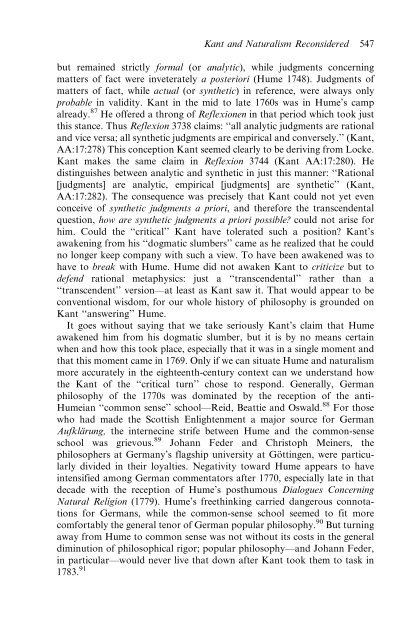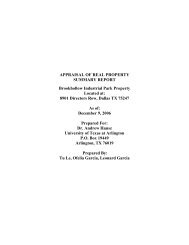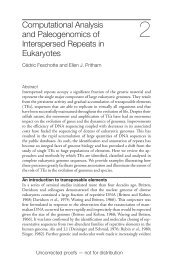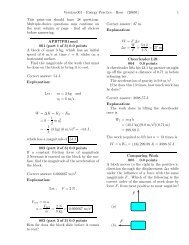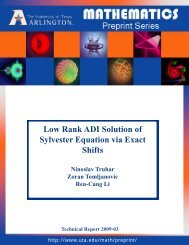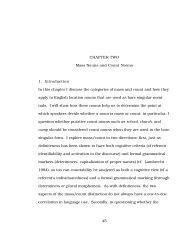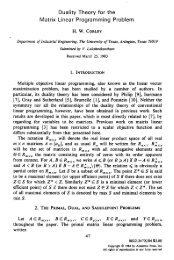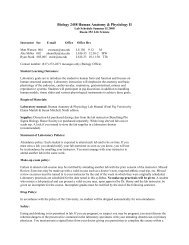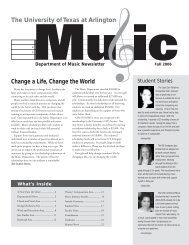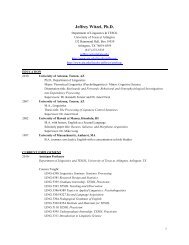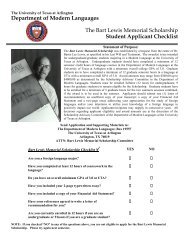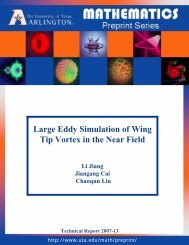Kant and Naturalism Reconsidered
Kant and Naturalism Reconsidered
Kant and Naturalism Reconsidered
You also want an ePaper? Increase the reach of your titles
YUMPU automatically turns print PDFs into web optimized ePapers that Google loves.
ut remained strictly formal (or analytic), while judgments concerningmatters of fact were inveterately a posteriori (Hume 1748). Judgments ofmatters of fact, while actual (or synthetic) in reference, were always onlyprobable in validity. <strong>Kant</strong> in the mid to late 1760s was in Hume’s campalready. 87 He offered a throng of Reflexionen in that period which took justthis stance. Thus Reflexion 3738 claims: ‘‘all analytic judgments are rational<strong>and</strong> vice versa; all synthetic judgments are empirical <strong>and</strong> conversely.’’ (<strong>Kant</strong>,AA:17:278) This conception <strong>Kant</strong> seemed clearly to be deriving from Locke.<strong>Kant</strong> makes the same claim in Reflexion 3744 (<strong>Kant</strong> AA:17:280). Hedistinguishes between analytic <strong>and</strong> synthetic in just this manner: ‘‘Rational[judgments] are analytic, empirical [judgments] are synthetic’’ (<strong>Kant</strong>,AA:17:282). The consequence was precisely that <strong>Kant</strong> could not yet evenconceive of synthetic judgments a priori, <strong>and</strong> therefore the transcendentalquestion, how are synthetic judgments a priori possible? could not arise forhim. Could the ‘‘critical’’ <strong>Kant</strong> have tolerated such a position? <strong>Kant</strong>’sawakening from his ‘‘dogmatic slumbers’’ came as he realized that he couldno longer keep company with such a view. To have been awakened was tohave to break with Hume. Hume did not awaken <strong>Kant</strong> to criticize but todefend rational metaphysics: just a ‘‘transcendental’’ rather than a‘‘transcendent’’ version—at least as <strong>Kant</strong> saw it. That would appear to beconventional wisdom, for our whole history of philosophy is grounded on<strong>Kant</strong> ‘‘answering’’ Hume.It goes without saying that we take seriously <strong>Kant</strong>’s claim that Humeawakened him from his dogmatic slumber, but it is by no means certainwhen <strong>and</strong> how this took place, especially that it was in a single moment <strong>and</strong>that this moment came in 1769. Only if we can situate Hume <strong>and</strong> naturalismmore accurately in the eighteenth-century context can we underst<strong>and</strong> howthe <strong>Kant</strong> of the ‘‘critical turn’’ chose to respond. Generally, Germanphilosophy of the 1770s was dominated by the reception of the anti-Humeian ‘‘common sense’’ school—Reid, Beattie <strong>and</strong> Oswald. 88 For thosewho had made the Scottish Enlightenment a major source for GermanAufklärung, the internecine strife between Hume <strong>and</strong> the common-senseschool was grievous. 89 Johann Feder <strong>and</strong> Christoph Meiners, thephilosophers at Germany’s flagship university at Göttingen, were particularlydivided in their loyalties. Negativity toward Hume appears to haveintensified among German commentators after 1770, especially late in thatdecade with the reception of Hume’s posthumous Dialogues ConcerningNatural Religion (1779). Hume’s freethinking carried dangerous connotationsfor Germans, while the common-sense school seemed to fit morecomfortably the general tenor of German popular philosophy. 90 But turningaway from Hume to common sense was not without its costs in the generaldiminution of philosophical rigor; popular philosophy—<strong>and</strong> Johann Feder,in particular—would never live that down after <strong>Kant</strong> took them to task in1783. 91 <strong>Kant</strong> <strong>and</strong> <strong>Naturalism</strong> <strong>Reconsidered</strong> 547


